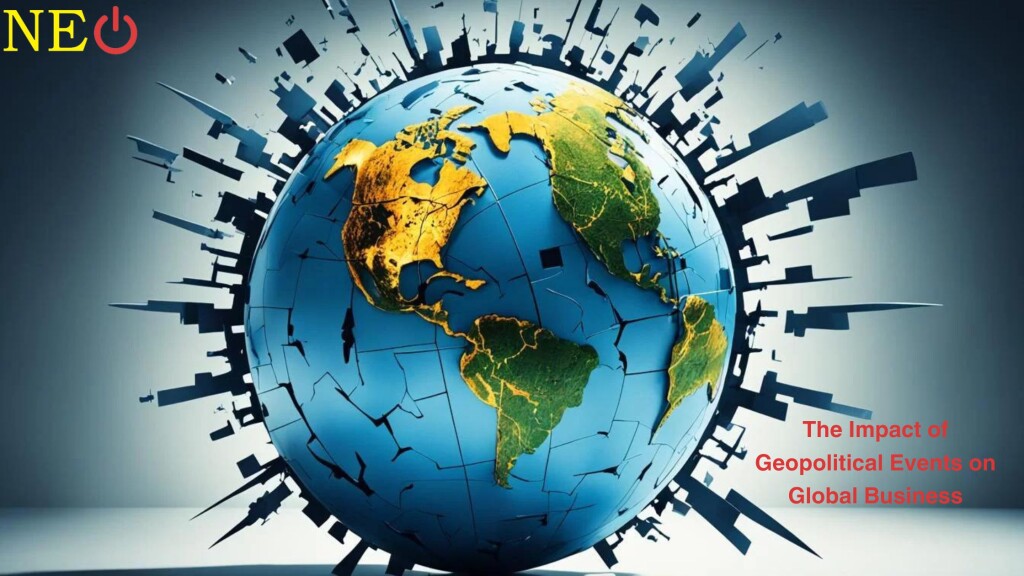In today's interconnected world, geopolitical events wield significant influence over global business environment. From trade wars and sanctions to political instability and international conflicts, these events have ripple effects that permeate economies, industries, and businesses worldwide. Understanding their impact is crucial for businesses to navigate uncertainties, mitigate risks, and seize opportunities in an increasingly volatile geopolitical environment.
Table of contents [Show]
1. Trade Wars and Tariffs
Geopolitical tensions often manifest themselves in the form of trade disputes and the imposition of tariffs. For instance, the trade war between the United States and China in recent years disrupted supply chains, increased costs for businesses, and prompted strategic realignments. Companies faced challenges such as sourcing alternative suppliers, adjusting pricing strategies, and complying with new regulations, all of which impacted their profitability and operational efficiency.
2. Political Instability and Market Volatility
Political instability in key regions can lead to market volatility, affecting investor confidence and consumer spending patterns. Events like coups, elections, or civil unrest can cause fluctuations in currency exchange rates, stock markets, and commodity prices. Businesses operating in these regions must navigate heightened risks, implement contingency plans, and adapt their strategies to maintain stability and resilience in uncertain environments.
3. Sanctions and Regulatory Changes
International sanctions imposed on countries or entities due to geopolitical reasons can disrupt business operations and partnerships. Compliance with sanctions regimes requires businesses to carefully monitor and adjust their dealings with sanctioned entities, ensuring adherence to legal frameworks while minimizing disruptions to supply chains and financial transactions.
4. Impact on Supply Chains
Geopolitical events can disrupt global supply chains, leading to shortages of raw materials, components, or finished goods. Natural disasters, conflicts, or political decisions affecting trade routes can force businesses to diversify suppliers, redesign logistics networks, and invest in risk management strategies to ensure continuity and resilience in supply chain operations.
5. Strategic Decision-Making and Risk Management
Geopolitical risk assessment has become integral to strategic decision-making for businesses operating on a global scale. Companies must conduct thorough analyses of geopolitical factors, anticipate potential scenarios, and develop proactive strategies to mitigate risks and capitalize on opportunities. This may involve scenario planning, geopolitical intelligence gathering, and cross-functional collaboration to align business objectives with geopolitical realities.
6. Opportunities in Emerging Markets
Despite challenges, geopolitical events can create opportunities for businesses to expand into new markets or diversify their operations. Shifts in political alliances, regulatory reforms, or economic stimulus measures in emerging markets may present favorable conditions for investment and growth. Businesses that stay informed and agile can leverage these opportunities to gain competitive advantages and strengthen their market positions.
7. Navigating Regulatory Compliance
Geopolitical events often result in changes to regulatory frameworks and compliance requirements across jurisdictions. Businesses must stay abreast of regulatory developments, adapt their operations to meet new standards, and ensure transparency and integrity in their business practices. This may involve investing in legal counsel, regulatory experts, and compliance technologies to navigate complex regulatory landscapes effectively.
Conclusion
In conclusion, the impact of geopolitical events on global business is multifaceted and pervasive. From trade tensions and market volatility to supply chain disruptions and regulatory changes, businesses face a complex landscape of challenges and opportunities shaped by geopolitical dynamics. By adopting a proactive approach to risk management, staying informed about geopolitical developments, and fostering flexibility in their strategies, businesses can navigate uncertainties and thrive in an ever-changing global environment.
Comprehension these dynamics is essential for businesses seeking to safeguard their interests, capitalize on emerging opportunities, and sustain long-term growth amidst geopolitical uncertainties.









